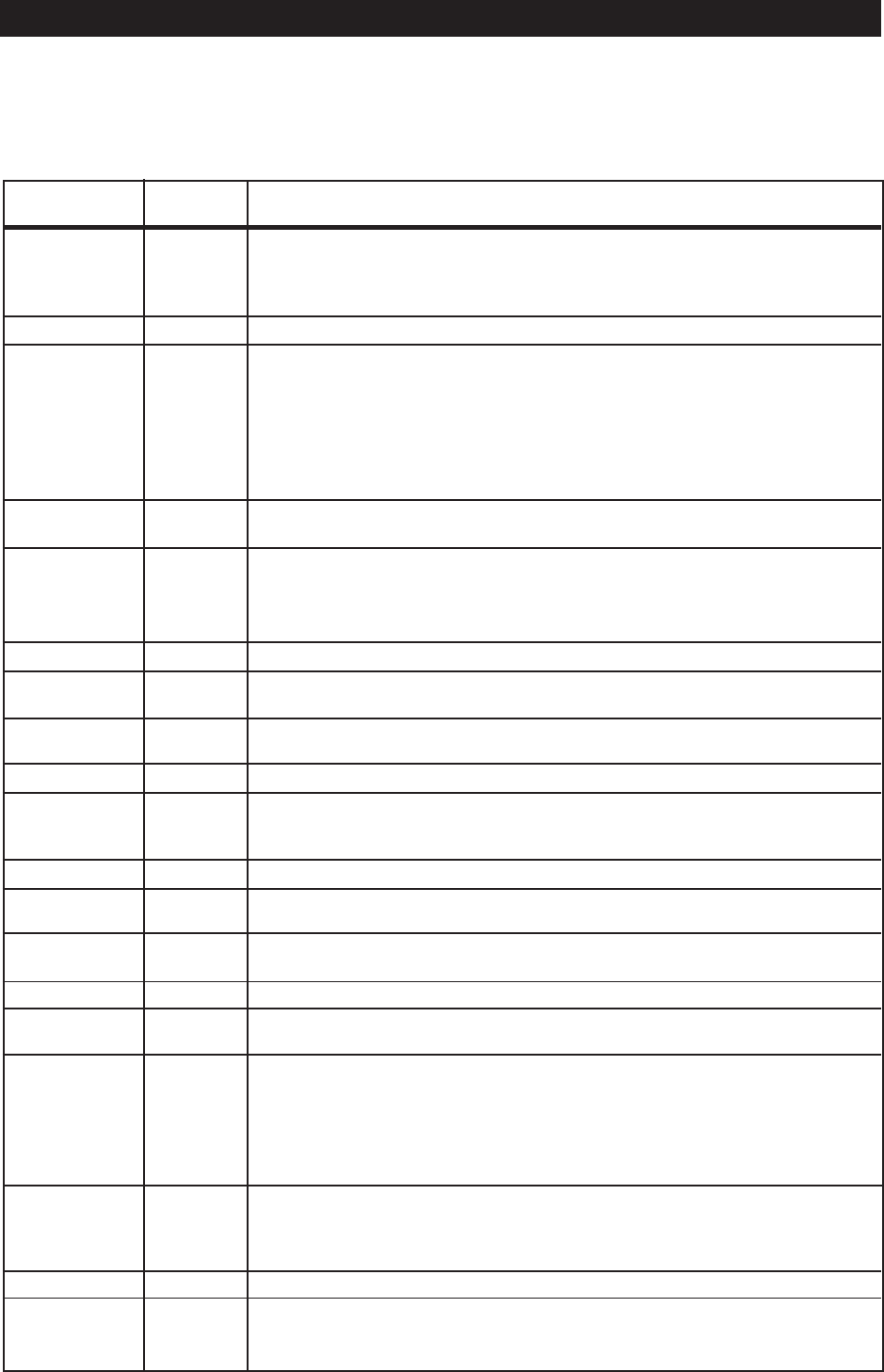
Page 14
WASHING SPECIAL ITEMS
Dishwasher
Material Safe Information and Recommendations
Aluminum Yes, with Anodized aluminum may fade or darken. Patches and discoloration may appear,
caution but they can be removed with steel wool. Load aluminum utensils (such as a pie
tin or roasting pan) where they do not touch other dishes because this can cause
gray or black marks. You can remove these spots with a nonabrasive cleaner.
Cast Iron No The seasoning is lost and the iron rusts. Hand wash and dry immediately.
China Yes, with China without decoration or with decoration protected by glaze is dishwasher
caution safe. However, you should arrange the objects so they do not touch each other or
they could be damaged.
China with a pattern on top of the glaze or with gold leaf decoration may fade. If
possible, check with the manufacturer. If that isn’t possible, wash one item over
an extended period then compare it with the colors and patterns of the rest of the
set. Wash in the Quick program on a low temperature setting.
Copper Yes, with Do not wash copper in the same load as silver or silver plate. It could discolor the
caution silver items. Do not let copper items come in contact with stainless steel.
Crystal No Antiques and very delicate china should not be washed in the dishwasher. Certain
types of lead crystal may etch if machine washed. Check with the manufacturer.
Yes Wash at a low temperature setting. Be sure to load crystal dishware so that it is
secure and will not fall over or knock against other dishware while being washed.
Dirilyte No Gold-colored flatware can become discolored.
Disposable No Cannot withstand machine washing.
plastic items
Flatware with No Certain types of adhesives may loosen when machine washed.
bonded handles
Glass Yes Exception: Milk glass may turn yellow.
Knives No Sharp kitchen knives may become dull if washed in very hot water and allowed to
contact other items during the wash. Wood handles may also warp, crack, or
loosen. Plastic handles may discolor. Check manufacturer’s washing instructions.
Lead crystal No Certain types of lead crystal may etch if machine washed.
Non-dishware No Never wash items such as electronic air cleaners, air filters of any kind, paint
items brushes, etc. You could damage the dishwasher.
Non-stick Yes If marked “Dishwasher Safe.” After washing, wipe the non-stick coating area with
coatings vegetable oil to maintain its non-stick quality.
Pewter No Pewter will tarnish when machine washed.
Plastic Yes If the item is labeled “Dishwasher Safe.” Do no use heated dry. Do not wash
disposalbe plastic items.
Silver and Yes, with Rinse these items if you’re not going to wash them immediately; salty or acidic
Silver plate caution foods can stain if left on. Dry dishwasher detergent can produce black marks
which are difficult to remove. Do not put silver and silver plate in the same silverware
basket with stainless steel. Contact between these metals can damage silver.
Do not wash copper utensils in the same load. This could cause a brown film on
the silver. Also, adhesives used to attach some hollow-handled knives can loosen.
Stainless Yes, with Rinse these items if you’re not going to wash them immediately; salty or acidic
Steel caution foods can stain if left on. Dry dishwasher detergent can produce black marks
which are difficult to remove. Do not mix different types of stainless steel in the
same load.
Tin No Tin will rust.
Wood No Unless marked “Dishwasher Safe” by the manufacturer. Wood can warp, crack or
lose shape with any kind of washing.
Most common dishware items can be safely washed in
an automatic dishwasher. If you have any doubts about
a particular item, check with the manufacturer to see if it
is dishwasher safe. If that isn’t possible, you might wash
one item of a set a few times and compare it to the rest
of the set to determine if washing it in the dishwasher
had any affect on it.
NOTE: ASKO has no control over what is put in our
dishwashers once installed in a customer’s home. You
are solely responsible for what you wash in your
ASKO dishwasher.


















